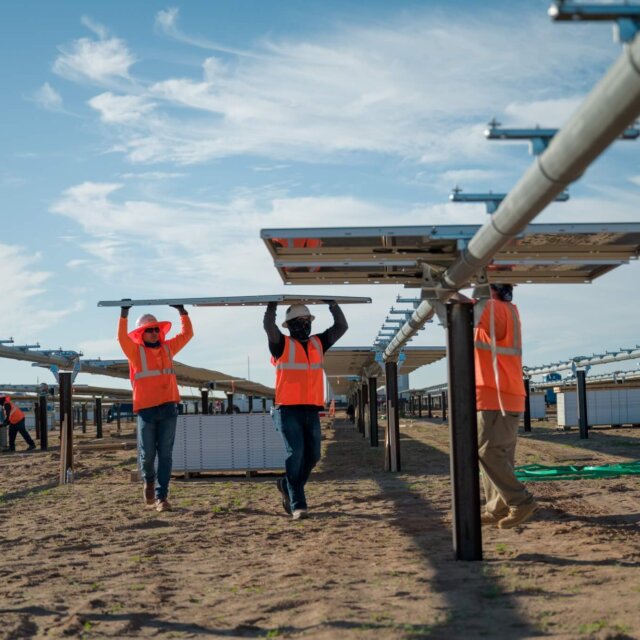Landowners
As America looks to increase our homegrown renewable energy, your land is more valuable than ever. Landowners across the country are seeing first-hand how leasing a portion of their land for solar or energy storage projects creates a diversified and dependable income stream today and for generations to come. Interested in leasing your land?
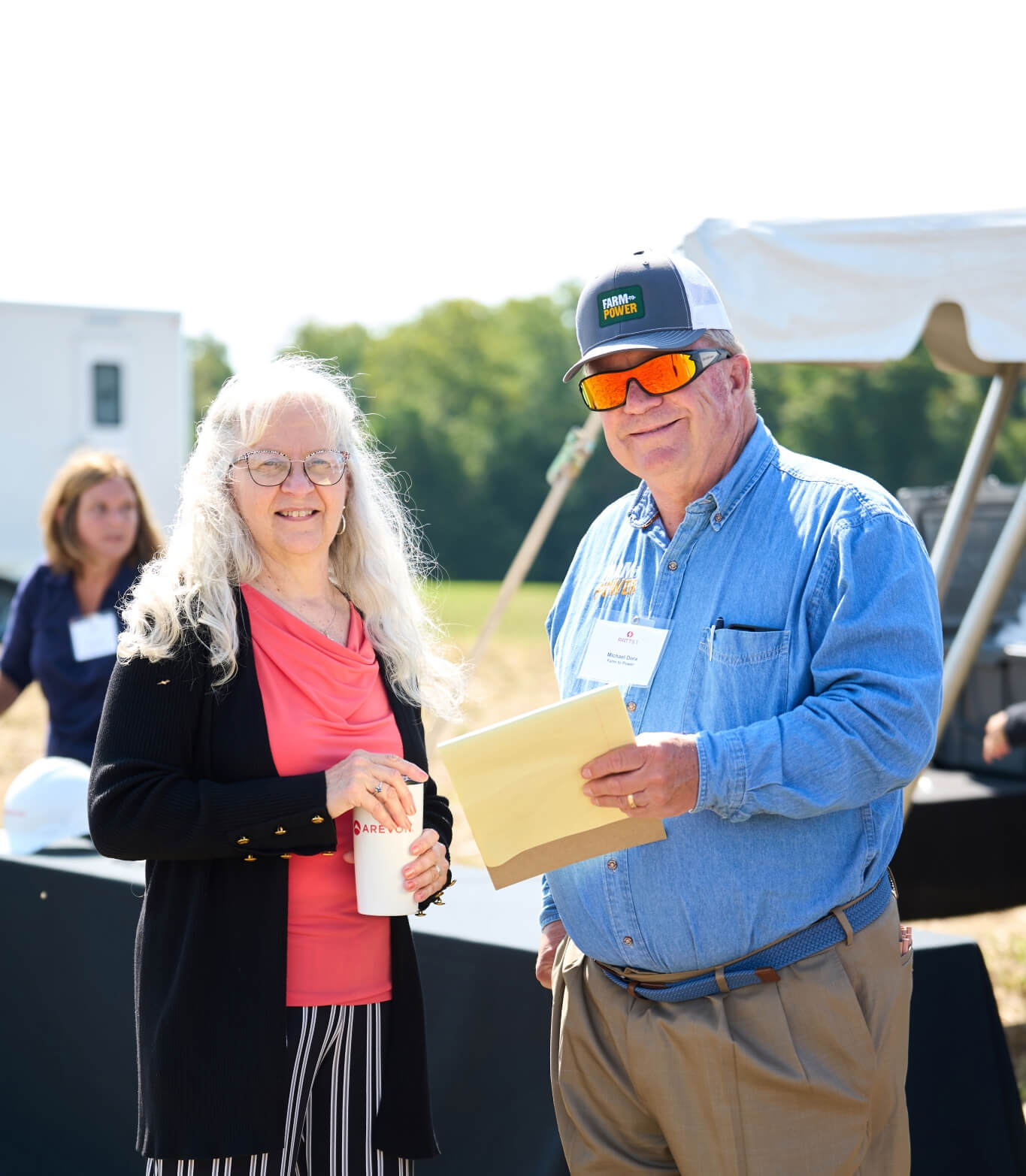
Value for Landowners
Partnering With Arevon
Your land is in good hands. As a long-term owner and operator of our projects, we value our relationships with landowner partners, and it shows in our track record and reputation — from being good stewards and respecting your land to ensuring lease payments are made on time.
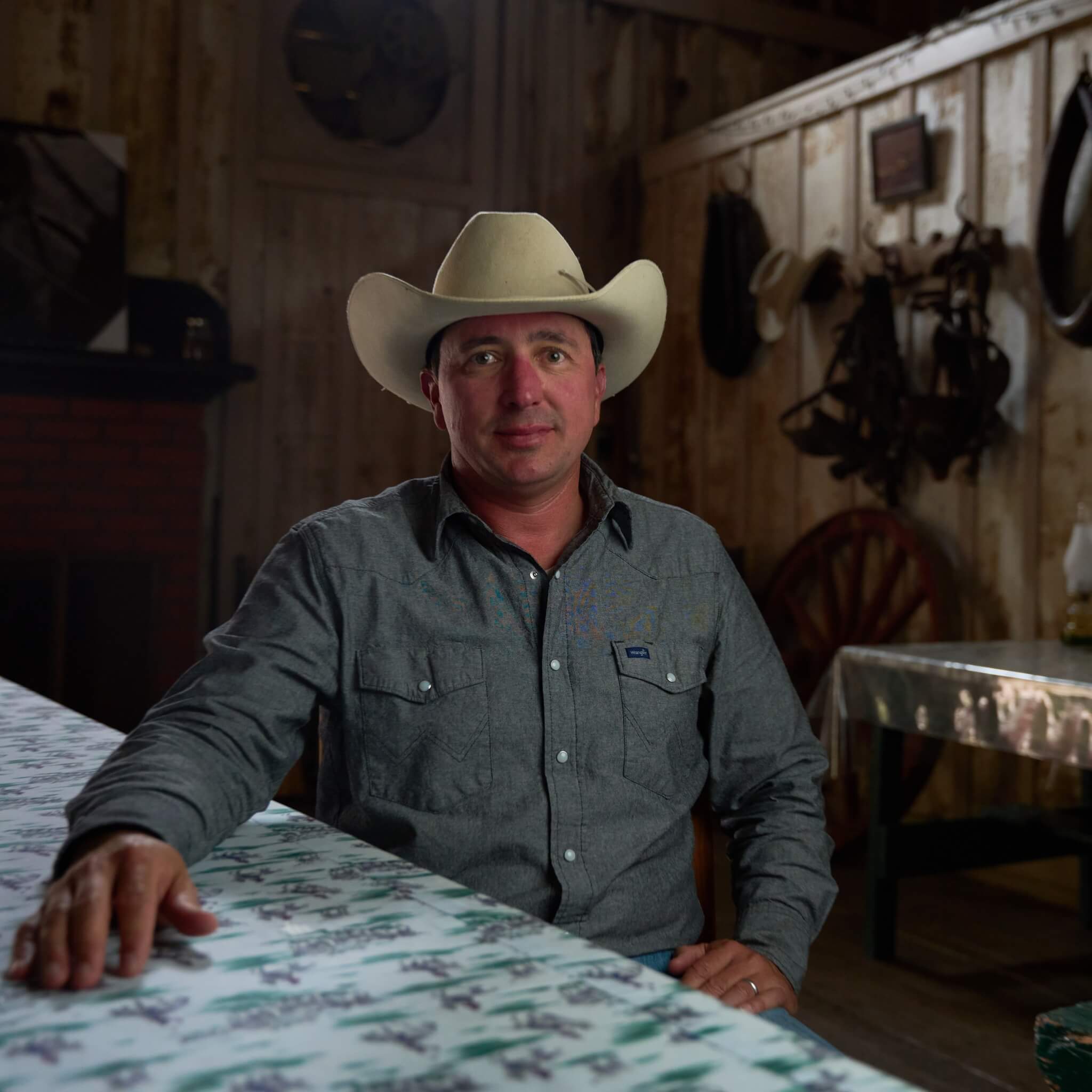
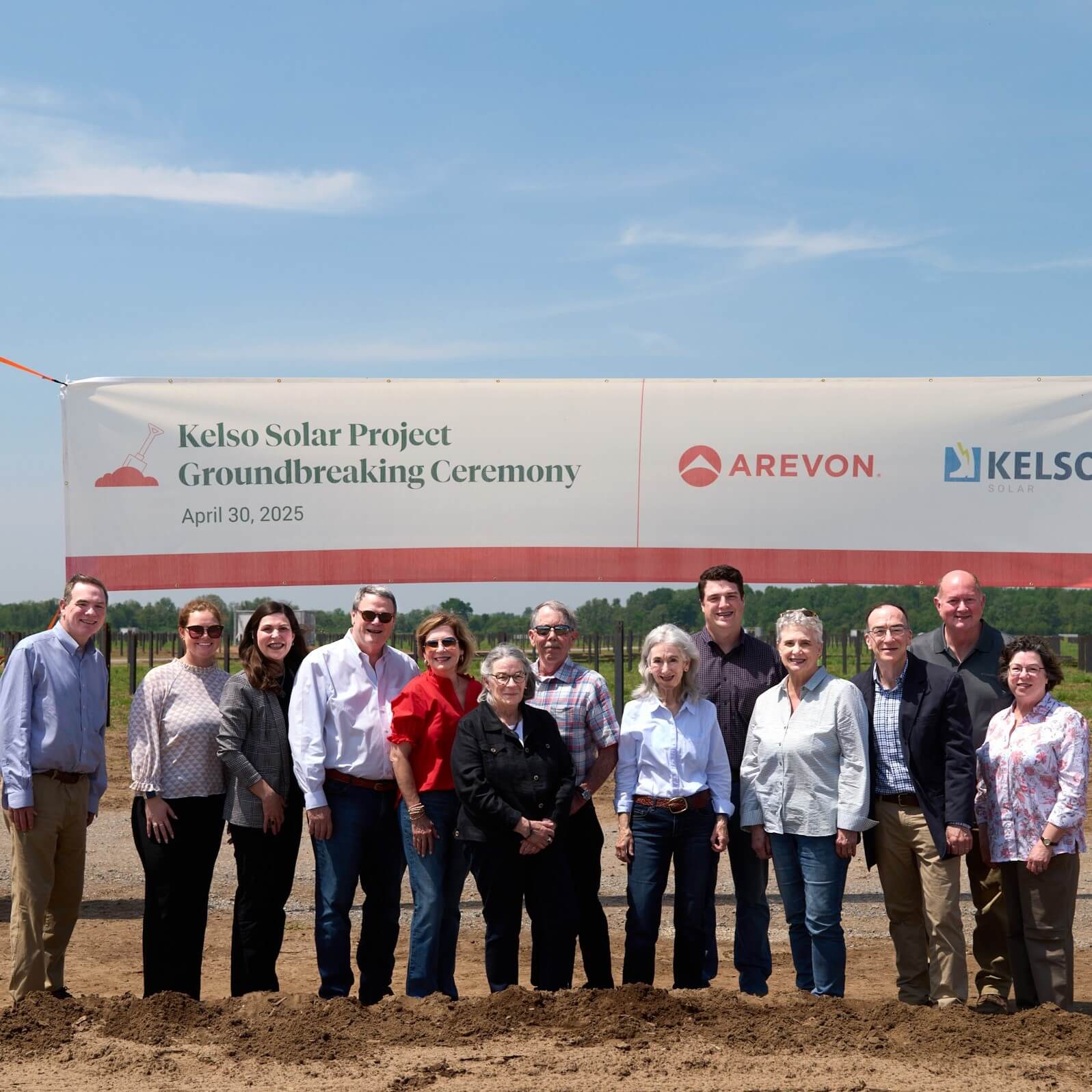
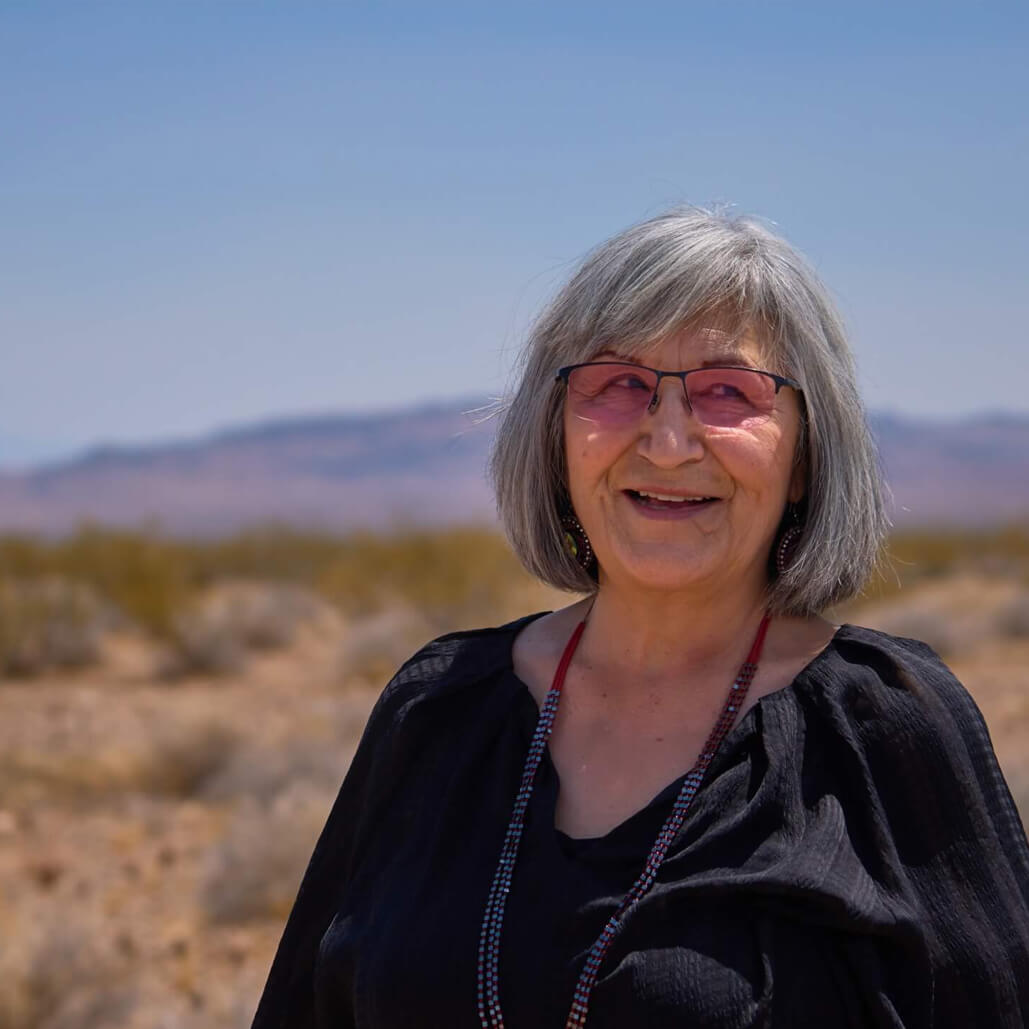
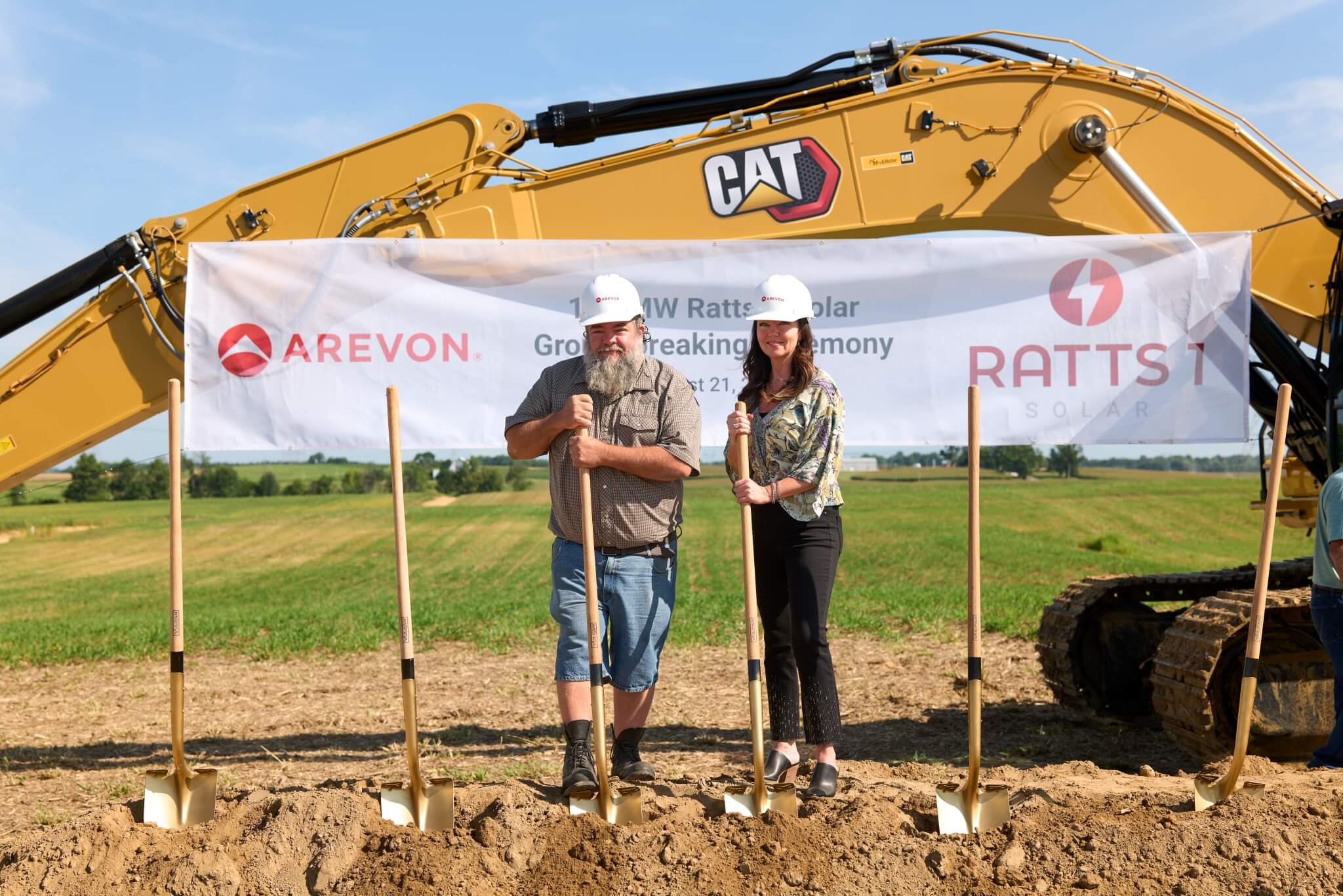
Landowner Frequently Asked Questions
Landowner
How much land is needed for a utility-scale solar project?
1 megawatt of solar-generated power typically requires about 6 acres of suitable land, depending on local characteristics of the property. Arevon seeks to develop solar projects 100 megawatts or larger in size; however, each project may include multiple landowners.
How much energy is produced by a utility-scale solar project?
The current national average of homes powered by 1 megawatt of solar is 172 U.S. homes.
Is Arevon’s land contract structure with landowners a lease or purchase agreement?
Arevon’s preference is a lease contract structure. A landowner should expect a multi-year land option to cover both the project due diligence (i.e., development phase) and construction periods, followed by the exercise of a long-term land lease throughout the operations term of the solar project.
How much lease income would my land generate?
Land payments vary by geography as determined by local site conditions and the market cost of land. Arevon is committed to partnering with landowners to ensure competitive compensation for the long-term use of your land. Additionally, Arevon is committed to open and transparent relationships with landowners. We have a standard lease that provides the same terms to all landowners within the project footprint.
What is the typical lifetime of a solar project, and what happens at the end of a project’s life?
A solar project’s lifespan is typically 35 to 40 years. At the end of the term, Arevon would be contractually responsible for removing all the equipment that is located on your site and returning the land to its original condition. If there is an opportunity to propose another solar project, or extend the lease past the contracted term, we would consult with the landowner to see if an extension is of interest to the family.
What happens if I sell my land?
If you sell the land during the lease period, the lease agreement and payments would be assigned to the new landowner once the sale is complete.
Who maintains the solar project?
Once constructed, Arevon’s internal dedicated operations and maintenance (O&M) team would be responsible for maintaining the site throughout the lifetime of the project.
Who is responsible for property taxes related to the solar project?
You will not be responsible for increased personal or real property taxes as a result of a solar project being constructed on your property. Arevon is contractually responsible for working with the local assessor to handle tax assessments related to the solar facility.
What type of land is needed for a solar project?
Flat and cleared land on sunny, nonshaded plots in close proximity to transmission lines or a substation is ideal, but Arevon also considers land with minor buildability obstacles, including slight inclines and non-contiguous parcels.
Do You Want to Discuss Leasing Your Land for a Solar or Energy Storage Project?
Testimonials
Hear directly from community members about their experiences partnering with the Arevon team.

“Working in the renewable energy industry is something I am truly proud of because every day we make meaningful contributions toward a greener world. Arevon is an incredible place to grow and learn thanks to the talented individuals who push each other to greater heights. I am very grateful to work at a company that promotes consistent growth and allows me to tackle exciting challenges.”

“Being part of this team is an incredible joy thanks to the unique culture that prioritizes both collaboration and nurturing each employee’s independent growth. I am inspired by my colleagues who help to make work fulfilling, and our generous benefits show that the company truly values its employees. I couldn’t dream of a better place to work.”
“Day-to-day, I feel energized by the Arevon team’s intelligence, ambition, and sense of humor. Looking into the future, I’m proud of my company’s work, as part of the broader renewable energy industry, to create a better, cleaner future for my daughter and her generation.”
“The complexity of this industry attracts creative problem solvers who are always trying to improve the way we do things. I especially love working at Arevon because there are many opportunities to add value, and the people are so supportive. My job is incredibly fulfilling.”
“I love the support that every Arevon team member provides for each other, and I am ecstatic to have so many of my peers as friends, in and out of work. I especially appreciate working for a company that has a leadership team who supports and values my contributions that ultimately go toward delivering clean energy projects that make a positive impact on our country’s infrastructure.”
“Working at Arevon has been an amazing experience because of the people and the supportive, inclusive culture. I’m lucky to be surrounded by such a hardworking and knowledgeable team, especially as the company and the renewable energy industry continues to grow. The benefits and opportunities for growth are unmatched, but it’s the people and the positive environment that truly make it special.”




